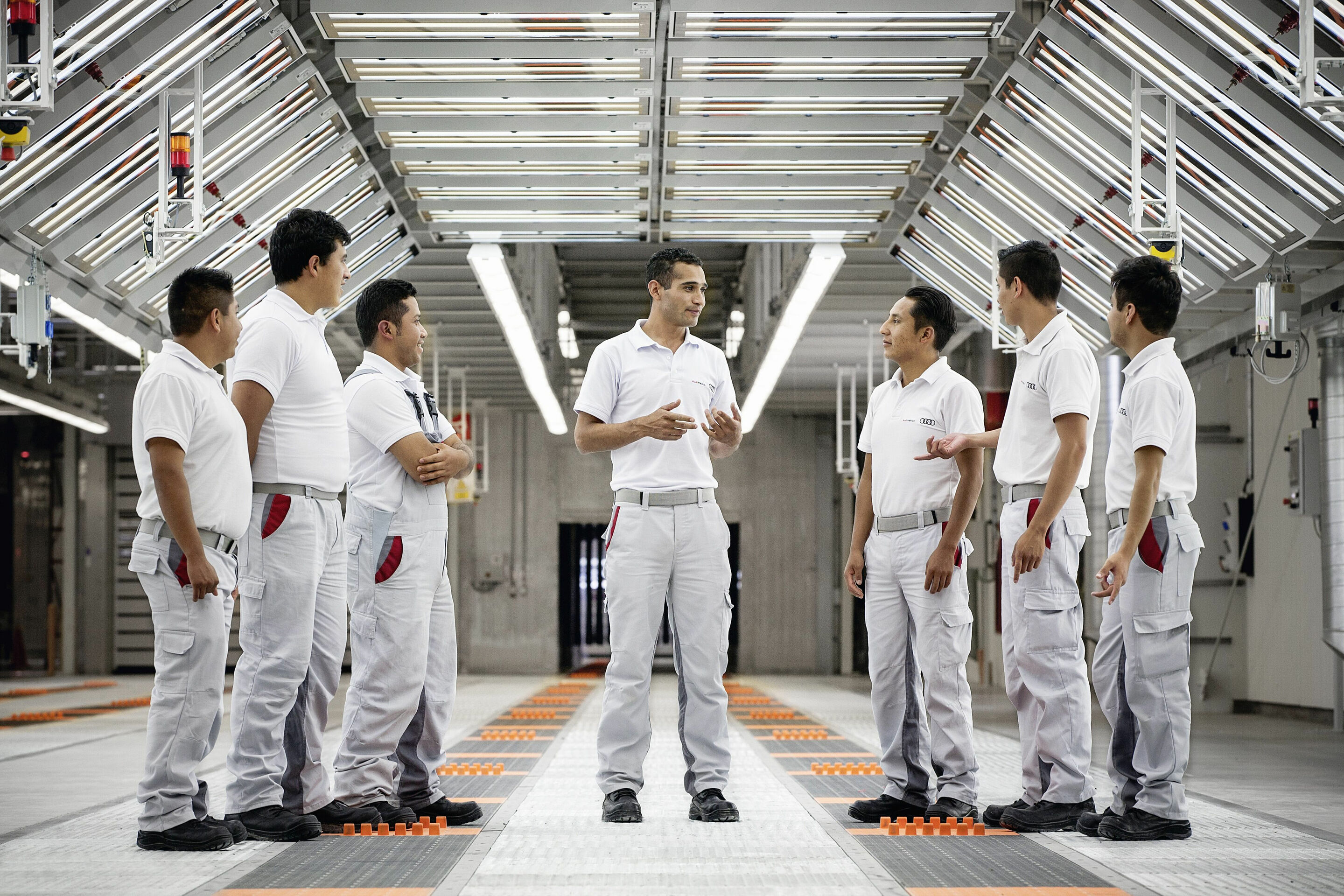Audi as an attractive employer
Back to overviewSince its foundation, the plant has created over 20,000 direct and indirect jobs in the region. Audi México has more than 5,000 employees.
At the Audi Group's Mexican plant, values and human rights are at the fore. In December 2021, the Board and employee representatives signed the Social Charter of the Volkswagen Group. Diversity is also recognized as a strength that enables the evolution, growth, and innovation of any company and also promotes the development of all employees.
Through the Dual Program, the company offers training for five specializations: Mechatronics, Automotive Mechatronics, Body and Paint Mechanics, Tool Mechanics, and Production Mechanics. In 2023, the sixth generation of apprentices graduated, reinforcing Audi’s dedication to developing local talent and contributing to the education and professionalization of the community in Puebla. Upon successful completion of the training program, each trainee is offered an employment contract. To date, more than 169 apprentices have graduated. Of last year’s graduates, 83% are from the state of Puebla, where the plant is located, and 28% are women, contributing to the inclusion of women in the automotive industry.
Audi México’s attractiveness as an employer is also evident from the fact that the company has been certified as a Top Employer by the Top Employers Institute for six years (2018–2024). Additionally, Audi México was recognized in the Forbes’ 2022 ranking as one of the Best Employers in Mexico and in the Universum 2023 ranking as one of the 100 most attractive companies to work for in engineering and IT.
Audi México has also been awarded the Socially Responsible Company Distinction from the Mexican Center for Philanthropy A.C. (Cemefi) and the Alliance for Corporate Social Responsibility (AliaRSE). These distinctions highlight Audi México’s strong commitment to sustainability, corporate responsibility, and creating shared value for the communities where it operates.
Benefits for employees such as "Family Time", a concept that gives both men and women the option of requesting three to twelve months to spend time with their families after the birth of a baby, are also employee-friendly. At the end of the period, they can return to their job or a similar position within Audi México.
In addition, the San José Chiapa plant provides transportation to all employees, operating more than 95 buses across four shifts. As a result, about 99% of its workforce travels in these vehicles, avoiding the emission of greenhouse gases from the 2,500 private vehicles employees would otherwise have to use to commute daily to the plant.
